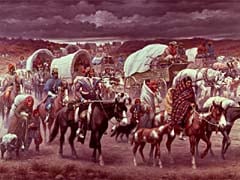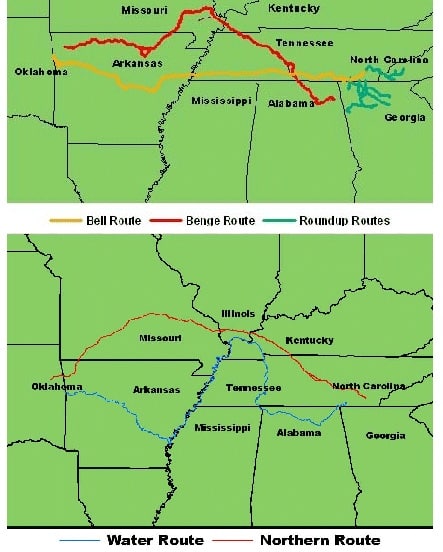Background of the Cherokee
- One of the largest of five Native American tribes who settled in the American Southeast portion of the country.

- Tribe led by several chiefs
- Highly religious and spiritual
- Lived peacefully in the Appalachian Mountains of Georgia and Tennessee
- Adopted culture of whites – wrote and spoke English
Cherokee Culture Change
- Cherokee homeland taken away by American settlers moving South
- Become American allies to keep land, tried to adapt to the American life style
- Wrote out constitution based on US constitution
- Became successful farmers, with voting, slavery, government, education system, etc.
- Took what they called “the white man’s road”
- Jackson’s Era led to Cherokee having to fight for their land in Supreme Court
Andrew Jackson
- As a boy Jackson developed many prejudices
- Unshakable in conviction that Indians should be removed from the South
- Routinely called Indians “savages” and people of mixed heritage “half-breeds”
- Used threats and bribery to persuade Cherokee to leave
- Jackson worked to address concerns of settlers hungry for more land
Indian Removal Act
- Whites were eager for land to raise cotton; the settlers pressured the federal government to acquire Indian Territory.
- Land greed was a big reason for the federal government’s position on Indian removal.
- Indian hating mentality that was peculiar to some American frontiersman
- Jackson set his priorities-to emphasize the sovereignty of states over the sovereignty of Indian nations
- Believed this offered the best hope to preserve peace and protect the Indians from being scattered and destroyed.
- Passed during Andrew Jackson’s second year in office
- Was controversial and divisive at the time, passing the Senate on a vote of 28 to 19 and the House 102 to 97.
- Jackson set his priorities-to emphasize the sovereignty of states over the sovereignty of Indian nations, and to recommend removal of eastern Indian nations to lands west of the Mississippi River.
Trail of Tears
- Desire for gold had been discovered in Georgia

- U.S government turned on their Indian neighbors
- Decided it was time for the Cherokees to leave their land and homes
Make room for settlers and speculators who would make a large profit
- Cherokees took the case to the Supreme Court and won a favorable decision
President Jackson refused to enforce
- Indian tribes were forced to leave their home (Indian Removal Act) and move to “Indian Territory”
- Present day Oklahoma
- Forced by military
- Journey was difficult and spanned over 1000 miles
- Sorrowful legacies of the Jacksonian Era
Aftermath
- Cherokee able to rebuild civilization to surpassing the level it had been in 1838
- Factionalism become big factor in Cherokee tribe
- Splitting of a group into separate sections
- Usually due to conflict within the group
- Cherokees proceeded to adapt to their new homeland, and reestablished own system of government, modeled after United States.
- During Reconstruction suffered loss of self-government and land base.
- Tribal units strongly distrusted all whites after the trail of tears.
- Factions began raiding parties and ventured out killing all whites
- Distrust of the tribal leaders that would appease or placate the US Government, these people normally moved away from the tribe.
